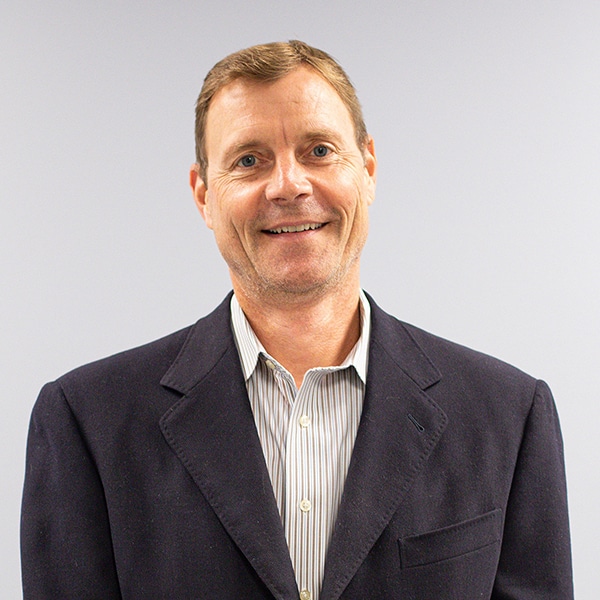Knee Arthritis
Arthritis is a common cause of knee pain and disability. There are different types of arthritis that can cause knee pain, with causes ranging from wear and tear on the joint over time to injuries to autoimmune conditions.
Knee arthritis can affect your everyday life, interfering with your ability to participate in your favorite activities and limiting your mobility. Many patients seek knee pain treatment NJ options to find relief before considering surgery. Traditionally, severe knee arthritis has been treated with invasive surgical procedures like joint replacement. New Jersey Regenerative Institute offers less invasive treatment options for knee arthritis, utilizing comprehensive, multi-modal treatment plans tailored to the patient’s individual needs.
Drs. Bowen and Agesen are board certified physicians, and each have over 20 years of experience in treating patients. At NJ Regenerative Institute, they combine expertise and research to deliver innovative regenerative medicine solutions for knee arthritis and other orthopedic conditions. They are also the most experienced physicians in the state of New Jersey using regenerative medicine for orthopedic conditions like knee arthritis. In addition to participating in numerous research studies and data collection through their organization, DataBiologics, they also train residents, fellows and other physicians from across the country on the use of regenerative medicine.
Common Symptoms of Knee Arthritis
Common symptoms of knee arthritis include the following:
- Chronic knee pain that affects daily activity
- Swelling and/or stiffness in the knee
- Pain, swelling, and/or stiffness in the knee that gets worse with activity
- Pain and swelling that is worse in the morning, or after a period of rest
- A “catching,” “locking,” or “grinding” sensation in the joint due to loose fragments of cartilage and other joint material
With that said, there are other knee conditions that can cause or contribute to these symptoms, so a thorough examination is recommended to get an accurate diagnosis and targeted treatment plan. If you are struggling with ongoing knee pain NJ residents can trust our experienced physicians for advanced evaluations and care.
Our Approach to Treating Knee Arthritis
At New Jersey Regenerative Institute, we believe in taking a comprehensive approach to knee arthritis, as there are several factors that can contribute to a patient’s symptoms. That’s why we provide advanced knee pain treatment in New Jersey, helping patients find relief, improve mobility, and return to the activities they enjoy. These are the steps we take to recommend an individualized treatment plan for our patients:
1. Conduct a thorough exam and patient history analysis.
Our doctors conduct a thorough, hands-on exam of each patient, including imaging tests and a review of the patient’s biomechanics. We also take a thorough history of all treatments that you tried previously, review your response with physical therapists, and review lifestyle factors like your diet and activities. You will always work directly with one of our doctors throughout the entire examination and treatment process.
2. Review lifestyle changes that could reduce knee arthritis pain.
For some patients, lifestyle changes can greatly improve arthritis symptoms, and some might not need other treatments. This might include diet changes, like avoiding wheat, dairy, and processed foods to reduce inflammation. Knee braces and other assistive devices might be recommended, as well as changing shoes to provide better support and reduce stress on the knee. We might also discuss activity modifications and supplements that can help to reduce arthritis pain.
3. Discuss & recommend regenerative medicine options.
If lifestyle modifications and physical therapy do not provide adequate relief of knee arthritis symptoms, we will discuss additional options that may help. As regenerative medicine specialists, our recommendations are nonsurgical in nature. However, we always base our recommendations on the latest available research and consistently conduct studies to provide our patients with research-backed recommendations.
Recommendations for knee arthritis might include:
- Pulsed Electro-Magnetic Field Therapy (PEMF) – A PEMF machine uses an electrical current in conjunction with a looped wire to produce an electromagnetic field, which is activated and deactivated in cycles. Benefits of PEMF can include pain relief, increased circulation, and reduced inflammation.
- Hyaluronic Acid Injections – Hyaluronic acid injections have been effective in reducing arthritis symptoms for some patients with knee arthritis. These injections have a low risk of complications and tend to be covered by insurance.
- Platelet-Rich Plasma (PRP) Injections – PRP uses concentrated platelets taken from the patient’s own blood that are then injected into the affected area to help reduce pain. The injections typically last for one year, and tend to be more effective for patients with mild knee arthritis.
- Ozone Injections (Prolozone) – Prolozone injections consist of inflammatory modulating substances and vitamins mixed with ozone gas, which are injected into the joint to reduce inflammation and relieve chronic pain. This may also be helpful for patients with mild knee arthritis.
- Adipose/Fat Therapy – Adipose/fat injections are taken from the patient’s own fat, then injected into the joint to provide additional cushioning. This may be helpful for patients with more severe knee arthritis, and those with arthritis in both knees, as we can typically harvest enough fat to inject into both knees.
- Bone Marrow Aspirate Concentrate (BMAC) – BMAC injections are cellular procedures using material taken from the patient’s own bone marrow. This option tends to be better for patients with arthritis in only one of the knees, as we can typically only harvest enough bone marrow for one knee.
- New Jersey Regenerative Institute frequently participates in research studies on the effectiveness of these procedures for orthopedic injuries and are happy to discuss our research findings with patients.
Recovering from Regenerative Medicine Procedures
Recovery recommendations can vary based on the procedure performed and the patient’s individual needs. For most regenerative medicine procedures, patients are advised to avoid taking anti-inflammatory medications, as they can interfere with the effectiveness of the procedure.
Though there is some downtime associated with regenerative medicine procedures, most patients return to their pre-procedure activities within about a week, with activity levels gradually being increased as advised by your doctor.
Nonsurgical Knee Arthritis Treatment in New Jersey
Drs. Bowen and Agesen are board certified, and each have over 20 years of experience. They participate in numerous studies on nonsurgical treatment of knee arthritis, and believe in providing through examinations and comprehensive treatment plans to improve arthritis symptoms. As leading knee arthritis specialists, they are trusted by patients throughout New Jersey for effective, research-backed care. If you would like to schedule a consultation with one of our physicians, please call our office at 973-998-8309 or request an appointment online.
Links

Conditions and Treatments
- Orthobiologics
- Rotator Cuff Tear
- Knee Arthritis
- Meniscus Tears
Knee Arthritis Specialists

Jay E. Bowen, DO
Board Certified Physical Medicine & Pain Management Specialist

Thomas Agesen, MD
Board Certified Physical Medicine & Rehabilitation Specialist
